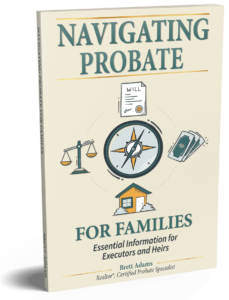To understand the potential curveballs, it’s helpful to start with a look at what’s expected to happen in the housing market. Here’s what experts are saying about home prices, sales, inventory, and mortgage rates.
1. Home Prices: Steady But Slower Growth

Home prices are projected to increase at a more manageable pace, with most analysts forecasting growth of 2% to 5% throughout the year. That’s a shift from the rapid price hikes of recent years, which is welcome news for buyers navigating affordability challenges.
For sellers, it’s still a positive outlook. Even modest price growth means increased equity—just without the bidding wars that defined the last few years.
2. Home Sales: Picking Up Momentum

After a relatively slow 2023 and 2024, existing home sales are expected to see a slight rebound. This signals a healthier, more balanced market, but the pace will depend heavily on mortgage rates and the availability of inventory.
For sellers, more buyer activity means more demand. For buyers, the increase in options provides more choices and potentially more negotiation power.
3. Housing Inventory: Signs of Relief

Experts expect national housing inventory to rise significantly, potentially even by double digits. This increase is crucial, as a lack of available homes has fueled competition in recent years.
While inventory growth offers hope for buyers, it’s still unlikely to reach pre-pandemic levels. Buyers will have more choices, but the market isn’t about to become a buyer’s playground.
4. Mortgage Rates: The Biggest Variable

Of all the market factors, mortgage rates are the hardest to predict. Most forecasts have rates hovering around 6%, but that’s far from a guarantee. Changes in inflation, economic conditions, and Federal Reserve decisions could send rates in either direction.
For buyers, timing will be everything. Catching a dip in rates could significantly improve affordability. For sellers, higher rates may limit buyer budgets, making strategic pricing even more essential.
Wild Cards That Could Shift the 2025 Housing Market
Predictions are great—until reality steps in. Here are the key “wild cards” that could disrupt the 2025 housing market, for better or worse.
1. Mortgage Rate Fluctuations
Insert Image Here: Visual of Rate Changes from Recent Years
While 6% is the current prediction for mortgage rates, a few economic factors could throw that number off. Federal Reserve policies, inflation trends, and broader economic conditions all play a role.
If inflation increases, rates are likely to follow suit. But if inflation cools, we could see rates come down. It’s a classic “wait and see” situation.
How It Affects Buyers & Sellers
-
Buyers: Be ready to act fast if rates drop. It’s smart to get pre-approved and keep an eye on the market.
-
Sellers: If rates climb, buyer affordability drops. Competitive pricing will be crucial to attracting buyers.
2. Federal Housing Policies
Insert Image Here: Image of Legislative Documents or a Capitol Building
Changes in government policy can have a huge impact on real estate. With a Republican administration in place, proposals to increase housing supply could ease pressure on the market. Ideas like opening federal land for development and reducing regulatory costs are being floated as possible solutions.
On the flip side, policies like stricter immigration rules and higher tariffs could drive up construction costs, limiting the effectiveness of supply-side measures.
How It Affects Buyers & Sellers
-
Buyers: More supply could mean better affordability and less competition.
-
Sellers: If supply increases too quickly, home values could stabilize or grow at a slower pace, affecting profit potential.
Final Thoughts
The 2025 housing market is filled with opportunity—but it’s also packed with potential surprises. For buyers, the key is to be ready to act when the right home or rate comes along. For sellers, strategy and timing will be essential to capture the most value from your property.
If you’re curious about how national trends might impact your local market, I’m here to help. Let’s connect and discuss what’s ahead for your buying or selling journey in 2025.



